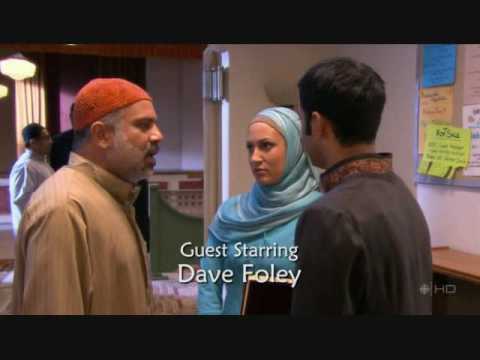The Dictator is nothing more than silly comedy with crude sexual content and a regurgitation of a century old anti-Muslim depictions. In my community advocate role of liaising with the entertainment industry, I attended an advanced screening of the new Sasha Baron Cohen film last week. Afterward, I was glad I saved myself 12 bucks and a trip to the theater. Following the historic Arab spring, Cohen makes a film about the ever-despised Middle Eastern dictators.
But he damages any noble attempt to expose these tyrants by generously incorporating anti-Muslim stereotypes into the script: the Arab culture is presented as uncivilized, violence-prone and denigrating toward women; and the Arab people are portrayed as camel-jockeys and Jew haters.
An opportunist, Cohen also bashes Asians and feminists, and disrespects a dead body in his film. But he largely depends on simplistic and shallow anti-Muslim and anti-Arab depictions (rivaled only by the crude sexual imagery), to sell his latest entertainment product to audiences.
Prior to the film’s release, The Dictator scored a 67 percent on Rotten Tomatoes (The Hunger Games scored 84 percent in comparison).
Now, I understand… some in Hollywood go straight for the shock value. Others rely on the tired ethnic stereotypes for material. In The Dictator, Cohen depends on both (one film reviewer called him the “antithesis” of Charlie Chaplin).
But, isn’t it possible to be entertaining, humorous and intelligent all at the same time? We appreciate thought-provoking, envelope-pushing entertainment; Muslim, South Asian and Arab communities are not above that.
“The media can be an instrument of change: it can maintain the status quo and reflect the views of the society or it can, hopefully, awaken people and change minds,” the widely respected Katie Couric said. I agree 100 percent.
However, kindly spare us the racist stereotypes and the absurd 9/11 jokes (my community will be quick to point out that we were doubly attacked on 9/11, first as Americans, and second when we suffered considerable backlash as American Muslims).
I’m not looking to a Brit to make American Muslims look more attractive on U.S. screens. An emerging crop of Muslim writers, comedians and filmmakers has been tackling that challenge in recent years, and quite impressively.
Instead, I aim to challenge any writers and directors dying to incorporate Muslim/Arab/South Asian images into their material by helping get their creative juices flowing. In an effort to be helpful, here are some examples of success on the tube.
* The Colbert Report: The Word – It’s a Small-Minded World
* The Simpsons “Mypods and Boomsticks” episode
*The Daily Show with Jon Stewart
| The Daily Show with Jon Stewart | Mon – Thurs 11p / 10c | |||
| Kabulvision | ||||
|
||||
* Little Mosque on the Prairie (Canadian production)
True creativity is difficult precisely because it requires discarding the craving for quick box office hits and adding credits to one’s name in favor of intelligent, imaginative content.
In the case of two great recent films The Help and Avatar (yes, different genre but the principle applies nonetheless), such conviction paid off with huge dividends.
So, whether you head for the theater, wait for your DVD to arrive in the mail, or decide to opt for something else entirely is your decision.
But, I would like to hear from you. What are your thoughts on The Dictator?
Munira Syeda graduated from UC Berkeley with a master’s degree in journalism. She worked for various newspapers before joining the nonprofit, Council on American-Islamic Relations, Los Angeles. This article was originally published on The Huffington Post.




